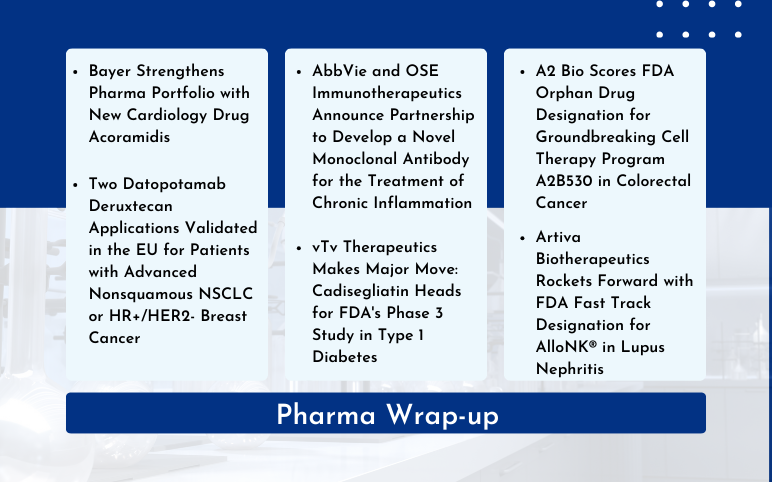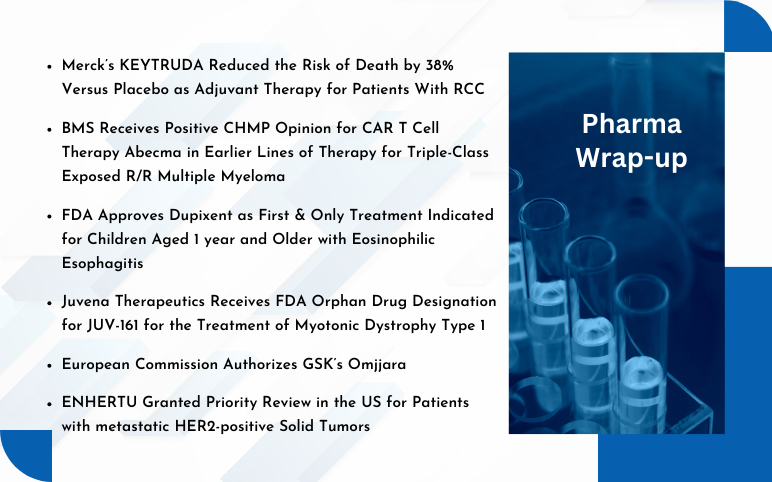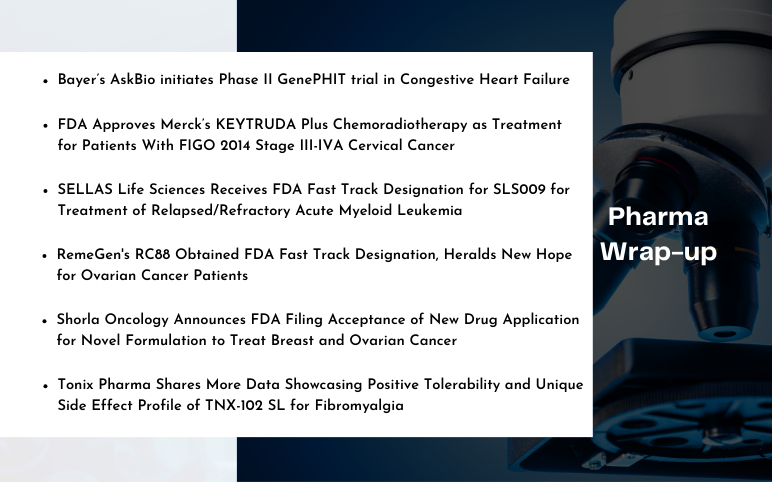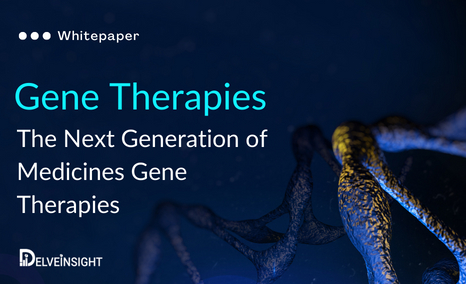Table of Contents
Merck’s Gefapixant could become the first drug approved for Chronic Cough
ATS 2020 Virtual is happening from August 5 to August 10, and it is exciting to watch major Respiratory /Pulmonary Pharmaceutical companies and their key presentations.
Merck is worth mentioning here, as it is presenting key posters and studies on Gefapixant in Chronic Refractory Cough (CRC).
Gefapixant History:
In July 2016, Merck acquired MK-7264 from Afferent Pharmaceuticals by signing a definitive agreement to USD 1.25 billion.
Gefapixant Facts:
- Gefapixant is a selective, non-narcotic, orally-administered P2X3 antagonist designed to target the mechanism by which certain nerve fibers become hypersensitized and can lead to chronic and debilitating symptoms, such as chronic cough, defined as a cough lasting more than 8 weeks
- The drug is currently targeting refractory or unexplained chronic cough, which affects approximately 10% of the general adult population around the world.
- Preliminary results from early studies have demonstrated that gefapixant is efficacious and safe. If licensed, gefapixant could provide a treatment option for patients with refractory or unexplained cough who have no licensed therapies available and few effective therapies available.
- Merck has already conducted around five Phase II trials and is currently conducting three Phase III trials.
Posters: (Thursday)
Session Title: D93 – EVALUATION AND NOVEL TREATMENT APPROACH FOR CHRONIC COUGH
Title – Dose Selection for Two, Phase III, Randomized Controlled Trials (Cough-1 and Cough-2) in Refractory or Unexplained Chronic Cough
Session Summary: The agenda of this study was to identify at least one dose of Gefapixant that achieves a favorable balance of efficacy and safety/tolerability. Gefapixant 15mg would provide a clinically meaningful reduction in cough frequency with minimal incidence of taste –related AEs and minimal rate of discontinuations. A higher dose of the drug in 45mg is predicted to provide maximal reduction in cough frequency with an acceptable rate of taste –related AEs as well as acceptable rates of discontinuations.
Session Title: D104 – Phenotypes, Prognostic Tools, and Adjunct Therapies in Cough, Cf And Non-Cf Bronchiectasis
Title – A Phase IIIb Trial Evaluating the Efficacy of Gefapixant in Reducing Stress Urinary Incontinence in Women with Chronic Cough
Session Summary: Merck announced the initiation of a Phase IIIb trial (NCT04193176) to evaluate the efficacy of Gefapixant in Reducing Stress Urinary Incontinence in Women with Chronic Cough. The company has worked on a unique trial design as it is targeting patients with Cough Induced stress Urinary Incontinence (SUI), which is a common condition associated with Chronic Cough. Repetitive daily increases in intra-abdominal pressure caused by Chronic Cough may contribute to SUI, therefore, treatment of Chronic Cough may improve cough induced SUI by alleviating the underlying increased pressure.
Session Title: D93 – EVALUATION AND NOVEL TREATMENT APPROACH FOR CHRONIC COUGH
Title- Responder Analyses Evaluating Treatment Effects over Time with Gefapixant in a Phase IIb Study of Refractory or Unexplained Chronic Cough
Session Summary– A 12 week Responder analysis study illustrated dose response , with more patients on Gefapixant 50mg vs placebo or the lower dose of 7.5mg and 20mg achieving clinically important reductions in cough frequency and clinically important improvement in Cough severity at Week 4, 8 and 12. The population of responders according to the endpoint –specific definitions were largely consistent, with the highest consistency observed in the gefapixant 50mg group
- Analyst Comment– Merck is leading with the most promising data on Chronic Refractory Cough. Earlier, the company presented positive data for most of its phase II trials. None of the other P2X3 antagonists in development has reached the phase III stage till now. One way and another, Merck has to be the favorite to obtain the first cough approval. Another Topline data on gefapixant presented at ATS 2020, showed the 45mg twice-daily dose meeting the primary efficacy endpoints of a statistically significant decrease in average hourly cough frequency versus placebo at 12 weeks (in the Cough-1 trial) and 24 weeks (in Cough-2). Merck has already conducted a successful Phase II study in Adult Japanese Participants with Unexplained or Refractory Chronic Cough.
Bayer’s BAY1817080, another potent P2X3 receptor antagonist shows promise in Phase I/II study for Chronic Refractory Cough
Although an early-stage player, Bayer is worth mentioning here, as it has presented its key poster on Chronic Refractory Cough.
History: In July 2019, Evotec SE announced that the Company has been notified by its partner Bayer about the successful outcome of a combined Phase I/IIa study with the P2X3 antagonist BAY1817080, originating from the Evotec/Bayer multi-target alliance. The objective of the study was to evaluate the safety, efficacy, and dose range of BAY1817080 in patients with refractory chronic cough.
BAY1817080 Facts:
- BAY 1817080, a potent selective P2X3 receptor antagonist, may have utility as a new treatment for refractory chronic cough.
- According to the initial information about the data, the study’s primary endpoint, a reduction of the 24-hour cough counts relative to placebo, was met. In the study, BAY1817080 was found to be safe and well-tolerated. Under the agreement from 2012, Evotec would be entitled to its next financial milestone payment upon the start of a Phase III clinical study, to be decided by Bayer.
- BAY 1817080 is the second P2X3 antagonist to demonstrate efficacy in the disease of chronic cough. It thus proves the concept that inhibition of P2X3 is a valuable treatment of this common, but poorly recognized disease.
- In ATS 2020, Bayer presented the data from a two-part(Part I and Part II) double-blind study and the objective was to assess safety, tolerability, and efficacy of ascending, repeated oral doses of BAY1817080 in patients with RCC (NCT03310645). This study was conducted in the United Kingdom. The company is further conducting studies in the United States and Japan locations as well.
Key Abstract/Poster:
Title – Safety and Efficacy of BAY-1817080, a P2X3 Receptor Antagonist, in Patients with Refractory Chronic Cough.
- Session Summary– BAY1817080 produced dose-dependent improvements in cough frequency and severity. The drug was well tolerated with low rates of taste-related AEs. These taste-related AEs were quite mild, suggesting that reduction of these events is related to high specificity for the P2X3 receptor over the P2X2/3 heterotrimer, together with low fluctuations of plasma levels at steady state ensuring that concentrations stay in the therapeutic window over the whole dosing interval. The results provided evidence that the P2X3 receptor antagonist has antitussive activity as it demonstrated a proof of concept for BAY1817080. In addition, the drug has utility as a new treatment for Chronic Refractory Cough, warranting further investigation in long-term therapy.
- Analyst Comment- Following the footsteps of Merck, Bayer is also developing a P2X3 Receptor antagonist and presented the safety and efficacy data during the ATS 2020. The company was quite satisfied with low rates of taste-related adverse effects, which has remained an important criterion when it comes to medication for Chronic Refractory Cough. It is interesting to note that the company is also targeting the Japanese Chronic Refractory Cough Market as it is assessing the safety of drug BAY1817080 in Japanese healthy adult male participants.
Shionogi’s highly selective P2X3 homomer antagonist improving quality of life in patients with Chronic Refractory Cough
S-600918 Facts:
- S-600918 is a novel chemical compound expected to alleviate refractory/unexplained chronic cough by selectively blocking P2X3 receptors that are relevant to cough reflex.
- Shionogi presented data from its Phase IIa randomized cross over study to analyze the effects on health related quality of life in patients with refractory chronic cough. (NCT04110054, Japic-CTI-184027)
- Earlier in October 2019, the company presented favorable results of the Phase II Study of S-600918 at the European Respiratory Society International Congress (ERS 2019) in Spain, where high levels of safety and tolerability was confirmed. The incidence of adverse events when S-600918 was administered was 35.5%, compared to 29.0% with the placebo, which showed no significant difference. The incidence of taste disturbance, an adverse event seen with similar drugs, was 6.5% after administration of S-600918.
Key Abstract/Poster:
#Abstract A7647 (Thursday)
Title – Phase IIa Randomized, Double-Blind, Placebo-Controlled, Crossover Study of a P2x3 Receptor Antagonist S-600918: Effects on Health-Related Quality of Life in Patients with Refractory Chronic Cough
Session Summary- S-600918 improved multiple subjective endpoints after 2 weeks of administration. These observations, combined with the efficacy results to reduce objective cough as previously reported, suggested the positive impact of S-600918 on quality of life in patients with Chronic Refractory Cough. These findings warrant further investigation with larger population samples.
Analyst Comment- Based on the promising safety and tolerability results of S-600918 in the Phase II study presented at European Respiratory Society International Congress (ERS 2019),Shionogi Pharma was adherent in conducting a multiregional Phase IIb study. In ATS 2020, the company concluded that their drug is creating a positive impact on the overall quality of life of these patients all over the world as a drug-discovery-based pharmaceutical company.









-Agonist.png)


